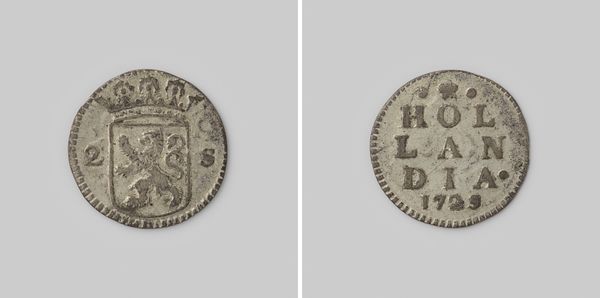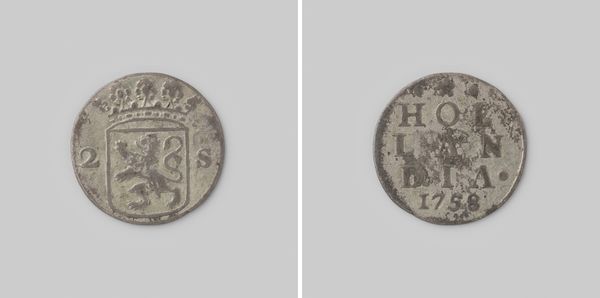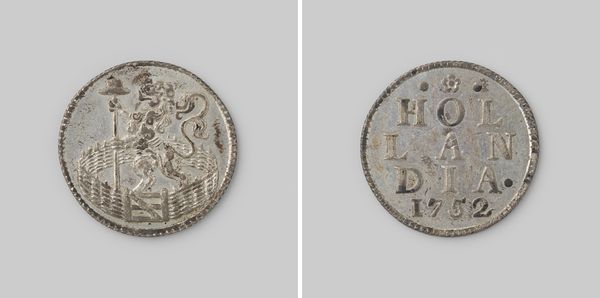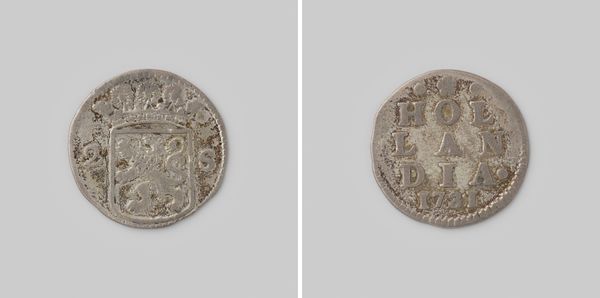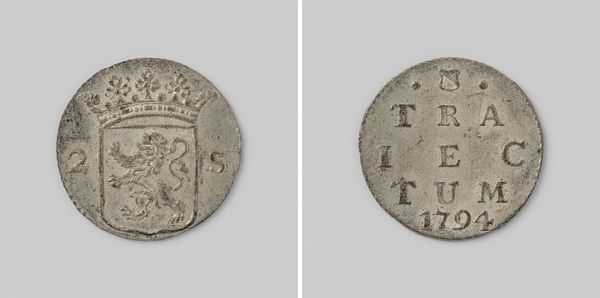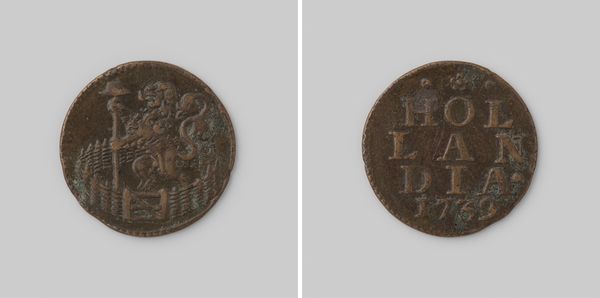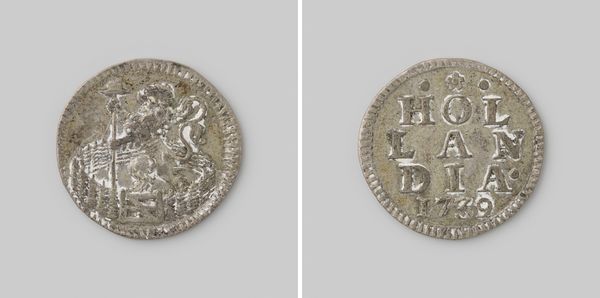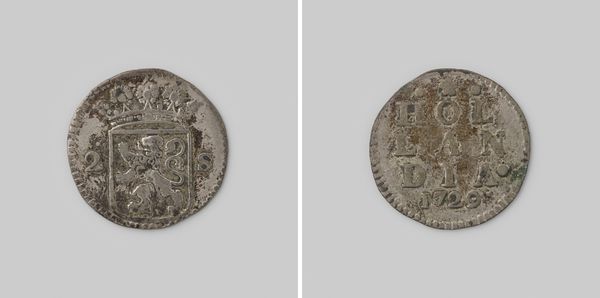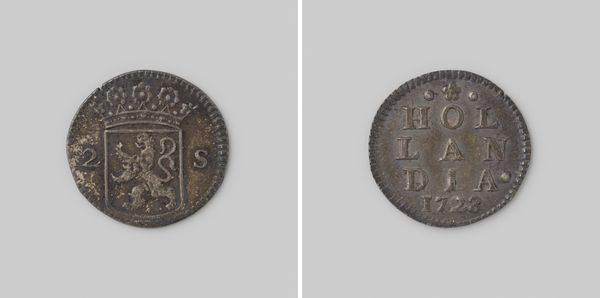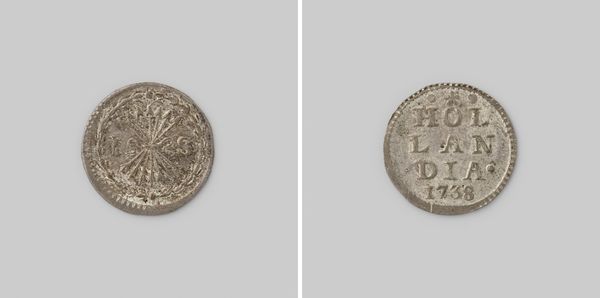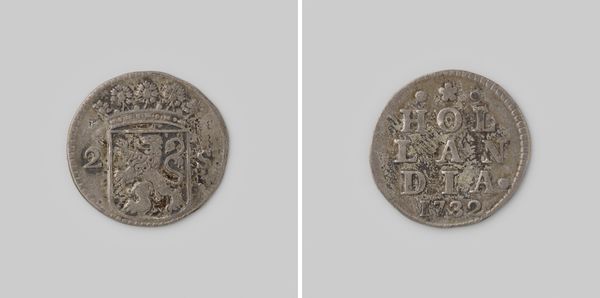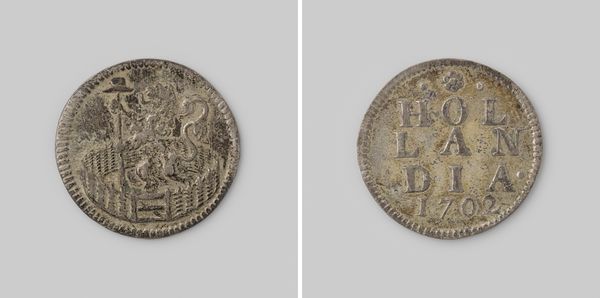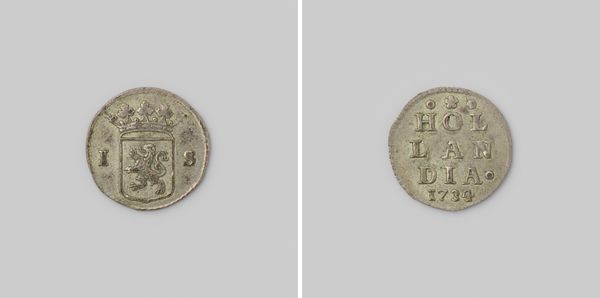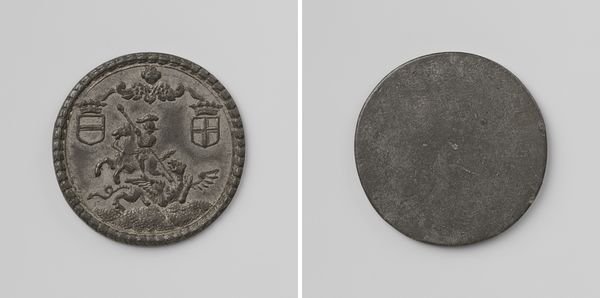
print, metal, engraving
#
portrait
#
dutch-golden-age
# print
#
metal
#
engraving
Dimensions: diameter 2.0 cm, weight 1.58 gr
Copyright: Rijks Museum: Open Domain
This is a Dutch double Stiver, made from silver in 1792 by the province of Holland. A coin like this one offers insight into the visual codes and cultural references circulating in the late 18th century. On one side, the crowned arms of Holland are displayed, with a lion rampant, a symbol with roots in medieval heraldry and associated with courage and nobility. On the other, the name "Hollandia" and the year of minting, 1792, are inscribed. This was a time of political and economic upheaval in the Dutch Republic, with growing tensions between the ruling elites and the rising merchant class. Coins such as this were not merely economic tools but also important vehicles for communicating political power and national identity. Numismatic collections, like the one here at the Rijksmuseum, offer a wealth of resources for understanding this period. They remind us that the meaning of art is always contingent on its social and institutional context.
Comments
No comments
Be the first to comment and join the conversation on the ultimate creative platform.
